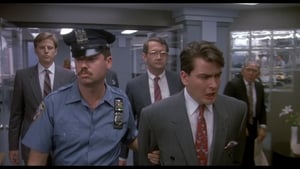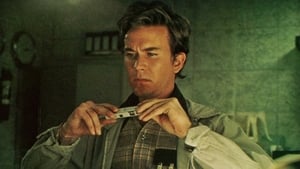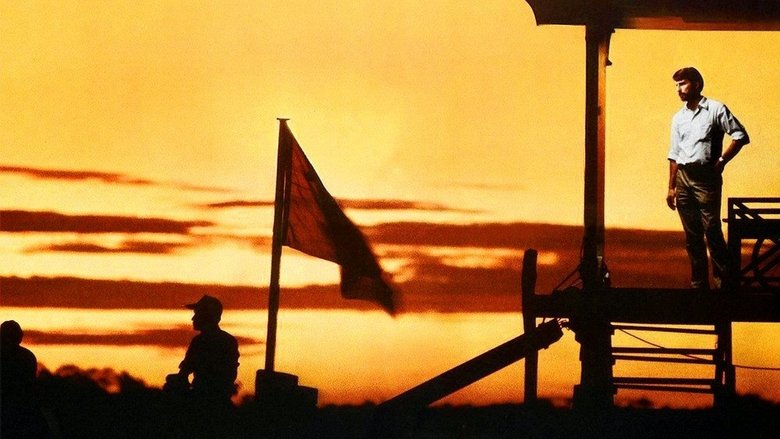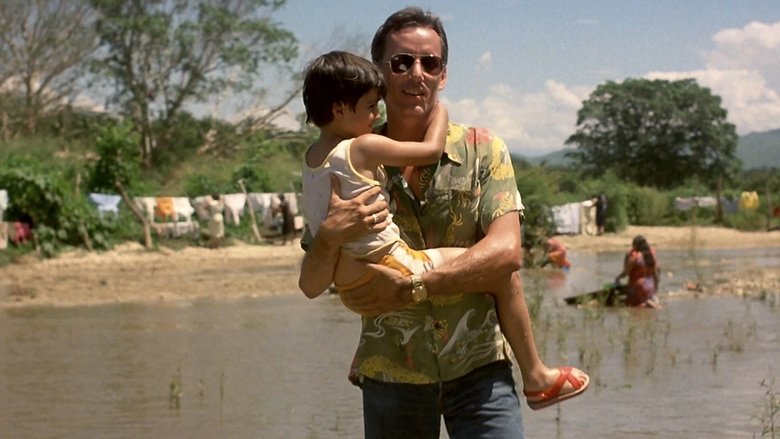Exploring 80s cinema: Politics and nudity on screen
The 1980s were a fascinating time in film, often blending serious political themes with explicit content. These movies offered a raw look at society and power dynamics.



The 1980s, a decade often characterized by excess and shifting global landscapes, also produced a compelling wave of cinema willing to tackle complex political narratives alongside moments of daring on-screen nudity. This wasn't always gratuitous; sometimes, it served to heighten the tension, expose vulnerability, or reflect the moral ambiguity of the characters and situations depicted.
Filmmakers of the era weren't afraid to push boundaries, exploring themes like Cold War paranoia, corporate greed, political corruption, and the personal cost of power. Genres like the political thriller and the burgeoning neo-noir often became fertile ground for this blend, creating films that felt both topical and transgressive.
Consider how directors used intimacy, or its absence, to comment on power dynamics or character decay. The juxtaposition of stark political realities with moments of exposed humanity could be incredibly potent, forcing audiences to confront uncomfortable truths about the world and the people who navigate its treacherous waters. These movies weren't just entertainment; they were often bold statements, reflecting the anxieties and freedoms of a specific cultural moment. Getting into these films is an opportunity to revisit a time when cinema was perhaps more fearless in its portrayal of both the body politic and the human body.
8. The Last Emperor (1987)
Bernardo Bertolucci's visually stunning 1987 epic is the sweeping story of Puyi, the last emperor of China. It chronicles his life from his childhood in the Forbidden City to his death as a gardener in the People's Republic of China, spanning decades of political upheaval and transformation in the country. The film won nine Academy Awards, including Best Picture, and is renowned for its grand scale, historical accuracy (it was the first Western film granted permission to film inside the Forbidden City), and breathtaking cinematography by Vittorio Storaro. John Lone stars as the adult Puyi, portraying his isolated and ultimately tragic life as a figurehead caught between tradition and revolution. While not centered on the theme, the film includes brief, historically contextual nudity as part of depicting life within the imperial court and later under different political systems. It's a masterful historical drama deeply intertwined with China's complex 20th-century political history.

7. The Killing Fields (1984)
Roland Joffé's harrowing 1984 drama recounts the true story of the friendship between American journalist Sydney Schanberg and his Cambodian interpreter and assistant Dith Pran during the Khmer Rouge regime. Sam Waterston plays Schanberg, and Haing S. Ngor, a Cambodian doctor and survivor of the regime in real life, gives an incredibly moving, Oscar-winning performance as Pran. The film depicts the brutal political takeover of Cambodia by the Khmer Rouge and Pran's desperate struggle for survival in their labor camps, while Schanberg works to find him. It's a powerful, gut-wrenching portrayal of a real-life political horror and the enduring bond between two men. While its primary focus is the political nightmare and its human toll, the film includes brief, contextual nudity as part of depicting the harsh conditions endured by the population under the regime.

6. Born on the Fourth of July (1989)
Another powerful film from Oliver Stone, this 1989 movie tells the true story of Ron Kovic, a patriotic young man who volunteers for the Vietnam War, is paralyzed in combat, and becomes an outspoken anti-war activist. Tom Cruise delivered a transformative, Oscar-nominated performance as Kovic, charting his journey from idealistic soldier to disillusioned veteran speaking out against the government policies that sent him to war and then neglected him upon his return. The film is a searing political statement on the human cost of war and the treatment of veterans. It's an emotionally intense film that doesn't shy away from difficult realities, including the physical and psychological toll of war and the bureaucracy faced by disabled veterans. As part of depicting Kovic's life and recovery, there are moments that include nudity, illustrating his vulnerability and struggle.

5. Platoon (1986)
Oliver Stone's powerful and visceral 1986 film is a semi-autobiographical account of his experiences as an infantryman in the Vietnam War. Charlie Sheen stars as the young, naive recruit Chris Taylor, who witnesses the horrors of combat and the moral disintegration of his fellow soldiers, caught between the opposing philosophies of two sergeants played by Tom Berenger and Willem Dafoe (both nominated for Oscars). The film is a brutal, unflinching depiction of the war, offering a stark political critique of the conflict and its impact on the soldiers. It won the Academy Award for Best Picture and remains one of the most impactful war films ever made, conveying the chaos, fear, and ethical dilemmas faced by those on the ground. Amidst the grim reality of war, there are brief moments that include nudity, emphasizing the raw, stripped-down existence of the soldiers.

4. The Falcon and the Snowman (1985)
This 1985 film tells the incredible true story of Christopher Boyce and Daulton Lee, two young American men who become spies for the Soviet Union during the Cold War. Timothy Hutton plays Boyce, the disillusioned former altar boy working for a defense contractor, and Sean Penn is absolutely captivating and intense as Lee, his drug-dealing childhood friend. Their descent into espionage is driven by a mix of political disillusionment, thrill-seeking, and desperation for money. The film provides a fascinating look at the political climate of the 1970s and the perceived moral failings that could lead individuals to betray their country. Directed by John Schlesinger, it's a tense thriller that explores complex characters and their motivations. It also contains some nudity that reflects the characters' reckless lifestyles and the environment they inhabit.

3. Wall Street (1987)
Oliver Stone's iconic 1987 drama is the definitive cinematic take on 1980s corporate greed and ambition. Michael Douglas won an Oscar for his legendary portrayal of Gordon Gekko, the ruthless corporate raider whose mantra 'Greed is good' became the catchphrase of an era. Charlie Sheen plays Bud Fox, the young, ambitious stockbroker seduced by Gekko's power and wealth. The film serves as a sharp political and social commentary on the excesses of the financial world and the ethical compromises made in pursuit of success. It captures the look and feel of the decade perfectly, from the power suits to the technology (or lack thereof by today's standards). While primarily focused on finance and politics, the film includes scenes of affluence and personal lives that feature some nudity, fitting into the depiction of the lavish lifestyles of the characters. It's a cautionary tale that remains remarkably relevant today.

2. Salvador (1986)
Oliver Stone's raw and unflinching 1986 film plunges you headfirst into the chaos of the Salvadoran Civil War. James Woods gives an absolutely electric, Oscar-nominated performance as a down-on-his-luck journalist chasing a story and redemption amidst the political turmoil and violence. Alongside James Belushi as his eccentric companion, they navigate a landscape of death squads, military juntas, and guerrilla fighters. The film is a passionate, albeit controversial, look at American foreign policy and the brutal realities faced by those caught in the conflict. It's gritty, intense, and doesn't pull any punches, including graphic depictions of violence and some nudity that underscores the harsh environment and the vulnerability of the characters. It's a powerful, politically charged ride that solidified Stone's reputation as a director willing to tackle difficult, real-world issues.

1. Blow Out (1981)
Brian De Palma's 1981 thriller is a technical marvel and a gripping political conspiracy story. John Travolta delivers one of his finest performances as Jack Terry, a sound effects technician who accidentally records audio evidence of a political assassination. The film is a love letter to cinema and sound, borrowing heavily from Michelangelo Antonioni's 'Blow-Up' and Francis Ford Coppola's 'The Conversation,' but filtered through De Palma's signature stylish lens, complete with split diopters and slow-motion sequences. Nancy Allen, a frequent De Palma collaborator and his wife at the time, is fantastic as the woman caught up in the plot. The film's exploration of political corruption and the manipulation of media feels incredibly relevant, and it doesn't shy away from including nudity that fits within its gritty, exploitation-tinged thriller framework. It's a masterclass in suspense that was sadly overlooked upon release but has since gained rightful recognition as a masterpiece.

